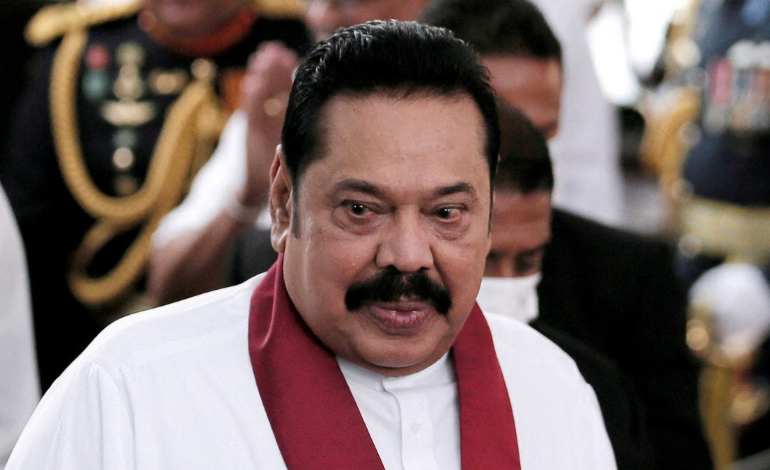On May 12, a Sri Lankan court barred former Prime Minister Mahinda Rajapaksa, his son and MP Namal Rajapaksa, and 15 others from travelling abroad in connection with the attack on peaceful anti-government protesters in Colombo this week

The Fort Magistrate's Court ordered them to surrender their passports as part of the ongoing investigation into the May 9 attacks on the GotaGoGama and MynaGoGama peaceful protest sites. The violence killed at least nine people and injured over 300 more.
The magisterial order was issued in response to a request from the police's criminal investigation division, which is in charge of the investigations into Monday's violence. Johnston Fernando, Sanath Nishantha, Pavithra Wanniarachchi, C B Ratnayake, and Sanjeewa Edirimanne are among the 13 members of the ruling Sri Lanka Podujana Peramuna (SLPP) who have been banned.
Deshabandu Tennakoon, Senior Deputy Inspector General (SDIG) of the Western Province, is also on the list of people who must remain in the country during the investigation into the violence.
The group was accused of brutally assaulting protesters opposite Mr. Rajapaksa's residence and near President Gotabaya Rajapaksa's secretariat. In a show of political strength, Mr. Rajapaksa rallied his grassroots supporters to force him not to resign as Prime Minister. By then, pressure from within the ruling coalition had mounted on him to resign in order for an interim all-party government to be formed.
His ardent followers attacked the demonstrators after he delivered a passionate speech. Who had been calling for Rajapaksa's resignation for weeks, blaming them for the country's worst economic crisis.
On May 9 and 10, enraged mobs torched a number of government MPs' homes and offices across the country, triggering a wave of spontaneous violence sparked by Mahinda Rajapaksa supporters' attack on anti-government protestors.
Mr. Rajapaksa resigned a few hours later, and the country was placed under curfew.
Mr. Rajapaksa's private residence was set on fire on Monday. He is known for his brutal military campaign against the Liberation Tigers of Tamil Eelam (LTTE) during his presidency from 2005 to 2015. After a series of deadly attacks on his supporters, he fled his official residence, Temple Trees, and sought refuge at the Trincomalee naval base.
President Gotabaya Rajapaksa said in a late-night televised address to the nation on May 11 that action would be taken against the perpetrators of Monday's "incident." Sri Lanka is experiencing its worst economic crisis since gaining independence from the United Kingdom in 1948. A lack of foreign currency has contributed to the crisis, as the country cannot afford to pay for imports of staple foods and fuel, resulting in acute shortages and extremely high prices.
Since April 9, thousands of protesters have taken to the streets across Sri Lanka, calling for the resignation of the Rajapaksa brothers.
For years, the powerful Rajapaksa clan has dominated Sri Lankan politics. Mr. Gotabaya is the last Rajapaksa family member in office, and his brother's resignation as Prime Minister did nothing to appease protesters or restore calm to the island nation.